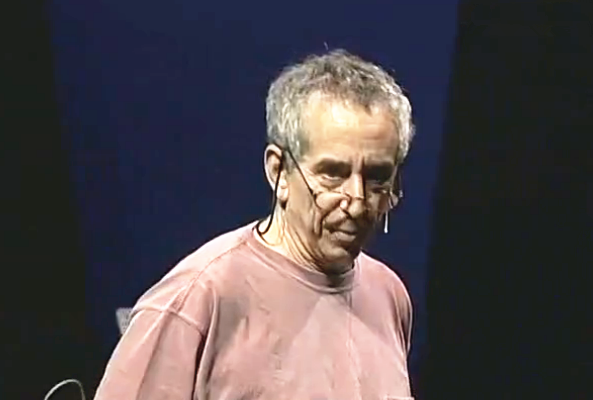So, in other aspects of life that are much more significant than buying things, the same explosion of choice is true. Health care.
同樣,在生活里的其它一些比購物更對我們產生影響事情上,這種選擇的爆炸同樣存在。醫療保健。
It is no longer the case in the United States that you go to the doctor, and the doctor tells you what to do.
在美國,現在早已不是那種你去看醫生,醫生直截了當地告訴你,你該如何做的時代了。
Instead, you go to the doctor, and the doctor tells you, "Well, we could do A, or we could do B.
相反,你到了醫生那里,醫生會對你說:“我們可以用治療方案甲,也可以用方案乙。
A has these benefits, and these risks.
方案甲有如此這般療效和風險。
B has these benefits, and these risks. What do you want to do?"
方案乙有如此這般療效和風險。你想怎么治?”
And you say, "Doc, what should I do?"
然后你說:“大夫,我該如何做?”
And the doc says, "A has these benefits and risks, and B has these benefits and risks. What do you want to do?"
醫生又說一遍:“甲有這些療效和風險,乙有那些療效和風險。你想怎么治?”

And you say, "If you were me, Doc, what would you do?"
你再問醫生:“大夫,你要是我,你選那種?”
And the doc says, "But I'm not you."
醫生說:“但是我不是你。”
And the result is -- we call it "patient autonomy," which makes it sound like a good thing,
其結果就是我們所說的“病人自治。”聽起來好像挺不錯的,
but it really is a shifting of the burden and the responsibility for decision-making from somebody who knows something -- namely, the doctor
其實是把做決定的擔子和責任,從一個知道該怎么做的人,我指的是醫生,
to somebody who knows nothing and is almost certainly sick and thus not in the best shape to be making decisions -- namely, the patient.
轉嫁到一個對治療方案一無所知,而且正在為病痛所困擾,根本不在能做決定的狀態的人身上,那人就是病人。
There's enormous marketing of prescription drugs to people like you and me,
現在那些處方藥品的廣告鋪天蓋地,都是針對著你我這些普通人的,
which, if you think about it, makes no sense at all, since we can't buy them.
你如果仔細想想,一點也說不通,既然我們不能直接去柜臺買,
Why do they market to us if we can't buy them?
他們為什么還要向我們做市場宣傳?
The answer is that they expect us to call our doctors the next morning and ask for our prescriptions to be changed.
答案是,他們希望我們看了廣告后,第二天早上會去給自己的醫生打電話,讓醫生把處方上的藥換成他們的。











